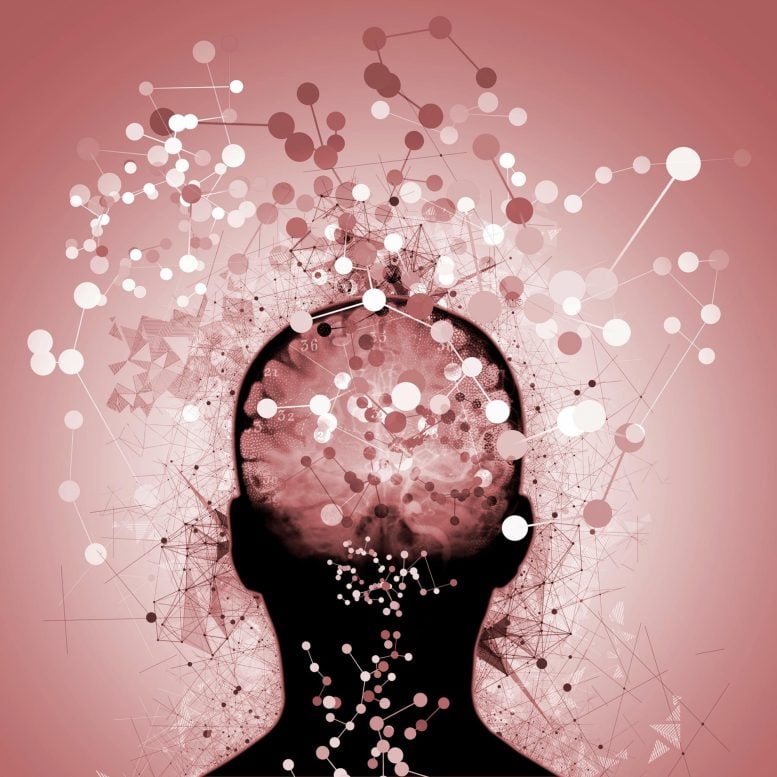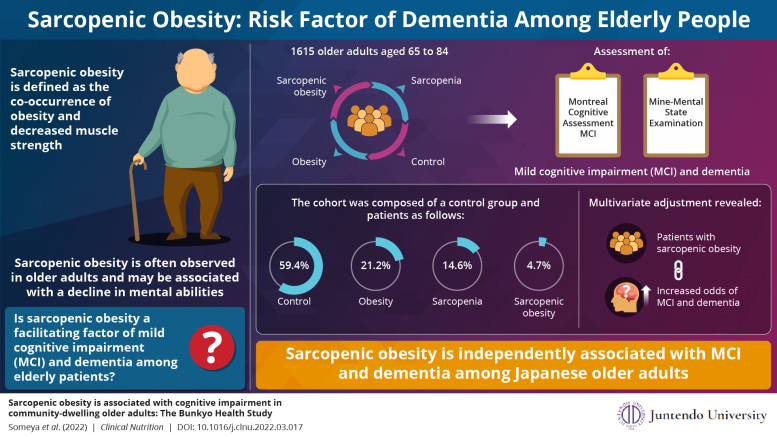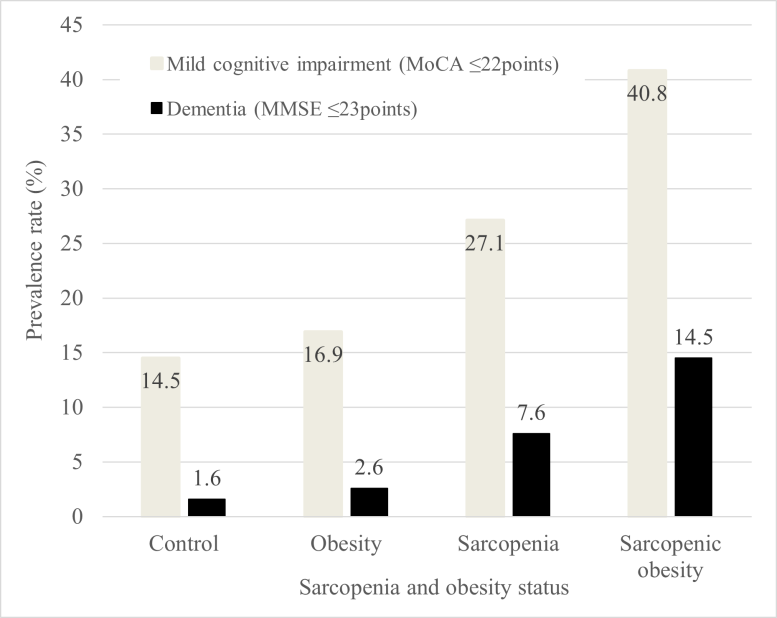
Scientists Have Linked Dementia in the Elderly to an Unexpected Candidate: Sarcopenic Obesity
Over 15% of Japanese adults over 65 suffer from dementia, a severe medical condition. It’s well known that dementia drastically reduces the quality of life for older adults, as the condition deteriorates their memory, thinking, and social abilities.
Obesity, on the other hand, has become an increasingly prevalent lifestyle disease. It often occurs with poor muscle mass, a condition called sarcopenic obesity which is assessed based on body mass index (BMI) and handgrip strength. Surprisingly, this condition is known to increase the risk of cognitive impairments. This caused scientists to wonder, does this relationship apply to dementia as well?

Examining the Connection Between Obesity, Sarcopenia, and Dementia
Researchers from Juntendo University in Japan, under the direction of Dr. Yoshifumi Tamura, answered this question in a recent study that was published in Clinical Nutrition. Dr. Tamura emphasizes the significance of their work by saying “If the association between sarcopenic obesity and dementia is established, appropriate preventive measures can be taken to reduce the occurrence of this condition and the risk of dementia in elderly patients.”
The study involved 1615 older Japanese people who were 65 to 84 years old and taking part in the Bunkyo Health Study. According to the individuals’ sarcopenia and obesity status, the researchers separated the participants into four groups: those with obesity, those with sarcopenia, those with sarcopenic obesity, and those without obesity or sarcopenia (control). They then examined the relationship between sarcopenia, obesity, and several mental functions.
Handgrip strength of less than 28 kg for males and 18 kg for women indicated sarcopenia or poor muscular strength, whereas individuals with a BMI of more than 25 kg/m2 were classified as obese. To determine if dementia and moderate cognitive impairment (MCI) existed, two evaluation techniques were used. MCI and dementia were determined by a score of less than 22 on the Montreal Cognitive Assessment and less than 23 on the Mine-Mental State Examination, respectively.

Sarcopenic Obesity and Dementia Risk
They found that 59.4% of the population had neither obesity nor sarcopenia, 21.2% had obesity, 14.6% had sarcopenia, and 4.7% of the population had sarcopenic obesity. The participants with sarcopenic obesity had the greatest rate of MCI and dementia, followed by those with sarcopenia, obesity, and finally the control group.
When the team ran multivariate analyses to check for statistically relevant associations, they found that sarcopenic obesity was independently associated with an increased prevalence of MCI and dementia compared with the absence of sarcopenia and obesity. The study also showed that sarcopenia is significantly associated with dementia in women, but not in men.
“This study clearly demonstrates that sarcopenic obesity, defined by the combination of BMI and hand grip strength is associated with MCI and dementia among Japan’s elderly people,” says Dr. Tamura.
But what are the long-term implications of this study?
Dr. Tamura’s answer to this question is encouraging. “Since we now know that there is a strong correlation between sarcopenic obesity and dementia, we may develop new treatment methods to manage the condition, thereby even reducing the prevalence of dementia.”
Reference: “Sarcopenic obesity is associated with cognitive impairment in community-dwelling older adults: The Bunkyo Health Study” by Yuki Someya, Yoshifumi Tamura, Hideyoshi Kaga, Daisuke Sugimoto, Satoshi Kadowaki, Ruriko Suzuki, Shigeki Aoki, Nobutaka Hattori, Yumiko Motoi, Kazunori Shimada, Hiroyuki Daida, Muneaki Ishijima, Kazuo Kaneko, Shuko Nojiri, Ryuzo Kawamori and Hirotaka Watada, 16 March 2022, Clinical Nutrition.
DOI: 10.1016/j.clnu.2022.03.017
Never miss a breakthrough: Join the SciTechDaily newsletter.
15 Comments
Don’t confuse cause and effect.
It could simply be an indication that people with dementia fail to maintain a proper diet and healthy exercise.
Very 8nteresting.
There are 600 plus muscles in Human body and 200 plus bones.😊😊😊
As we age muscles do tend to atrophy without regular use of the same. From childhood isometric exercise to website such nuevos usake should be taught to kids. Recommend are two eastern exercise methode. Yoga and Tai Chi. Take your pick.
Now the question is , how do we exercise all these muscles and use them at least a few times a day. We also ensure good bone health , which become increasingly porus with age. This disease is called Osteoporosis. Woman are more likely to have Osteoporosis as with every childbirth, they lose bone mass and bone density deteriorates.
So the more children that women have, the more likely it is that they will have Osteoporosis in Old Age and suffer.
Wish all nations across the globe would adopt a common sense approach to family planning.
Husband and wife should practise sensible family planning. This means that replacement of themselves , and the lady should not bear more than two Children whatever the gender of the Child born.
In China the authorities went overboard and adopted a single child policy , creating many little emperors and spoilt beats.☺️☺️☺️
Now Chinese Government us trying to overcompensate by incentivising couples to have more than two children.
Population policies should be sensible for the best health of mother and child.
Getting pregnant and destroying the unborn child in the womb , is not a very wise decision either ladies, as with every miscarriage or abortion , bone density is lost and Osteoporosis becomes increasingly plausible.
Views are personal and nit binding in any gender.
So much duplication and repetition. It’s been more than a decade since, as a lone lay US male victim and investigator diagnosing myself, I first (and last) wrote the JACI (the Journal of Allergy and Clinical Immunology) and the Lancet in 2011 of my at-home discovery of my personal non-IgE-mediated food allergy/added MSG related calcium loss, supported in 2013 and 2015 with ultrasound bone density testing, despite years of new supplementation with calcium, magnesium and vitamin D3. One of the greatest failings of so-called ‘modern medicine’ is the continuing use of standard serum blood testing for calcium; not reliable because the body relocates available calcium for blood pH regulation. Fatigue, insomnia, bad moods and short term memory problems mostly resolved within about a month of that late 2010 supplementation, at age sixty-six. Ignorant then of calcium carbonate binding with phosphorus to cause a phosphorus deficiency, I’m still only relatively healthy but again free of any prescription drugs while addressing a serious phosphorus deficiency I diagnosed at-home again myself, despite years with additional lab tests, in mid-March of 2021, which has proved very difficult to remedy at age seventy-eight. As to the female aspect, yes, pregnancy takes a heavy toll on a mother’s calcium stores and, especially for postmenopausal women not on hormone therapy, they are as likely as younger men to have a high serum level of uric acid/calcium redistribution because estrogen is protective against uric acid which can acidify the blood. Anybody paying attention out there yet; JACI, the Lancet?
Would be interesting to know what percentage of patients also had rheumatoid arthritis or osteoarthritis. Both would seem to affect handgrip strength, which might alter these results or point to a different link.
It should be noted, Alzheimers is often called Type 3 Diabetes. Insulin resistance of the brain. What causes obesity and metabolic dysfunction? High Insulin and Insulin resistance. The puzzle pieces are fitting in place. Sarcopenia is old age muscle loss/atrophy. Is that Insulin related as well or byproduct of being elderly and obese?
Meh. “Dementia” is a generalized term that covers a range of conditions. Alzheimer’s is a form of dementia. One of my grandparents had some form of dementia and was thin until the day they died; also their handgrip stregth was pretty much on the strong side.
As for this article (much less the study) I find it odd that they name a specific form of obesity (sarcopenic obesity) but fully FAIL to name the specific form of dementia they were testing against. Was the “dementia they studied; Alzheimer’s; or Vascular; or Lewy Bodies; or Parkinson’s; Huntington’s Disease and so on.
Sorry but this article/study leaves a gaping hole of missing information and likely won’t hold up to scrutiny for every form od dementia+obesity !!
I find it hard to take any report seriously that has spelling and grammar errors. “Mine-Mental State Examination” for Mini-Mental Status Examination – really? Others also but don’t want to take the time to educate the editors.
Hey all I can say is no brains no headaches. Things I don’t understand is while my mother was pregnant with me she had special shots they don’t give them anymore to pregnant women. Since she had the shots Anyway I’ve been told that I could live to be a 150 years old. So I’ll try to eat healthier and really use my mind. Thank you. Mary
A superficial reading … Could also be low testosterone.
Gil, MD, etc.
Respectfully, Gil, Md etc, in addition to what I posted above my second bout with mysterious, serious adult illness included chronic fatigue and generalized muscle weakness, which both substantially (never completely) resolved in about a month with experimental diet and lifestyle changes. Until Dr. Arthur F. Coca’s kind of chronic subclinical non-IgE-mediated allergy reactions and toxic food additives are included in all medical education and research most medical writing will continue to be ‘superficial’ and fatally flawed.
This article didn’t tell how to prevent dementia and what kind of exercise to have proper diet or regain some mass muscle. Where is that?
Hello, Nancy. As a senior lay American male victim, investigator and discoverer I cover some of that in my July 11 comments above, with more on the ‘About’ page of my @charlesgshaver video channel on Odysee dot com. In my case, the fatigue and inactivity faded away as I continued supplementing for my medically undiagnosed calcium deficiency, at least until I took calcium carbonate for too long. I hope that helps some.
Do can this be mitigated or reversed?
Carolyn, as posted some above, as only a sixty-six year old lay American male with long documented food sensitivities/avoidance I found in late 2010 I could reverse my serious self-discovered at-home calcium deficiency related health decline in about a month with supplements. Ignorantly taking calcium carbonate (binds with phosphorus) as a supplement for most of a decade, I’m now very gradually recovering from a serious self-induced phosphorus deficiency, also self-discovered at-home. Generally, I think, a lot of people could mitigate and/or reverse their premature decline if healthcare professionals just knew what to test for and how best to treat the underlying causes.
I do not believe on you that you are sharing that great information. Thanks for that..
https://www.mypennmedicine.onl/